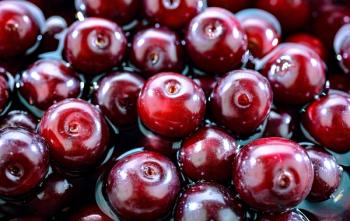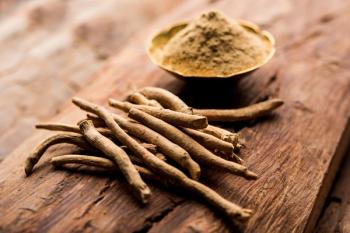
Curcumin Complexities: Do Consumers Understand Claims Made for Turmeric versus Curcumin?
As demand for curcumin supplements rises, so can consumer confusion.
We all know that curcumin is exploding in popularity as researchers continue to discover its amazing properties for a wide variety of health concerns. Unfortunately, when there is a huge increase in demand, there is an alarming rise in the number of marketers trying to coast on the wave of research on legitimate products by using misleading claims and misdirection. This hurts all of us. If we truly hold to our ultimate goal of helping the people who entrust us with their health, then we need to be direct and truthful. No unsupported exaggerations. No misleading claims. No “bait and switch” with inferior raw materials.
I admit I have a vested interest in curcumin, as my company has several very successful products made with a high-absorption curcumin called BCM-95. That is why we pay such close attention to curcumin science and news about this potentially life-changing herb.
I have become aware of products entering the retail market that I believe are making untruthful, misleading, or confusing absorption claims. I want to share the reasons why this disturbs me and hopefully offer you enough information to spark concern in you as well.
Recently, companies have started to compare their curcumin absorption levels to that of curcumin’s parent compound, the spice turmeric. Only 2 to 5% of turmeric is actually curcumin. To get 100 mg of curcumin, you’d have to take 2000 mg of turmeric (5% of 2000 = 100). So you could say that curcumin in any form is at a minimum 20 times more potent than an equal amount of turmeric. However, this is unfairly comparing apples to oranges.
Playing a numbers game to create false perceptions of how efficacious a product will be is unacceptable. This hurts people who expect medicinal effects, and hurts our industry. When I see claims about increasing the absorption of turmeric when referring to a curcumin ingredient, I cringe. I have also seen curcumin-type claims made on labels when the product contains only turmeric. People will not get the same therapeutic results using turmeric as they will when using curcumin.
There are also phosphatidylcholine (lecithin) curcumin complexes that are purported to be more bioavailable. [Editor’s note: One of these ingredients, Indena’s Meriva ingredient, was recently shown in a randomized, double-blind crossover study published in the Journal of Natural Products to have superior bioavailability over standard curcumin.] I’m concerned by some confusing claims I have seen on marketer labels stating, for example, that a product is 500-mg “curcumin phytosome complex,” which people may misunderstand as containing 500-mg curcumin. The complex is only 100-mg curcumin, because the curcumin complex is one part curcumin, two parts lecithin, and two parts cellulose. You shouldn’t have to have a chemistry degree to read a dietary supplement label.
Another problem is that because of curcumin’s popularity, there is a shortage of this raw material. Remember when I said that only 2 to 5% of turmeric is curcumin? It used to be that the higher-curcumin turmeric roots were used for the supplement industry, but now even roots with less than 2% are being used. Why is this a problem? Because the lower the curcumin content of the turmeric root, the harsher the solvent you need to use to extract the curcumin in a profitable manner. I believe we will see increasing problems with residual solvents in poor-quality products in the next year or two.
Last, but certainly not least, is the fact that curcumin can be made synthetically. I believe in the power of full-spectrum natural curcumin. Many major research analysis organizations are currently developing tests that can help us identify these “unnatural” products. Synthetic curcumins often have an unbalanced spectrum of curcuminoids, and these developing tests may prove to be a way to unmask these imitators. Natural product manufacturers need to do their homework on curcumin vendors to make sure they are delivering only natural curcumin.
Curcumin can change lives. The worst thing that could happen would be for people to use inferior products, with little curcumin actually reaching the blood stream, and deciding that curcumin doesn’t work. Inferior products that do not deliver on their promises tarnish all our reputations.
Before you sell any curcumin product, including ours, I urge you to ask for published evidence of whatever absorption claims are made. Ask for published research for actual health problems. Most of us got into this industry because we have a passion for natural health. We need to be proactive in protecting customers from deceptive claims, substandard raw materials, and disappointing results
Newsletter
From ingredient science to consumer trends, get the intel you need to stay competitive in the nutrition space—subscribe now to Nutritional Outlook.




